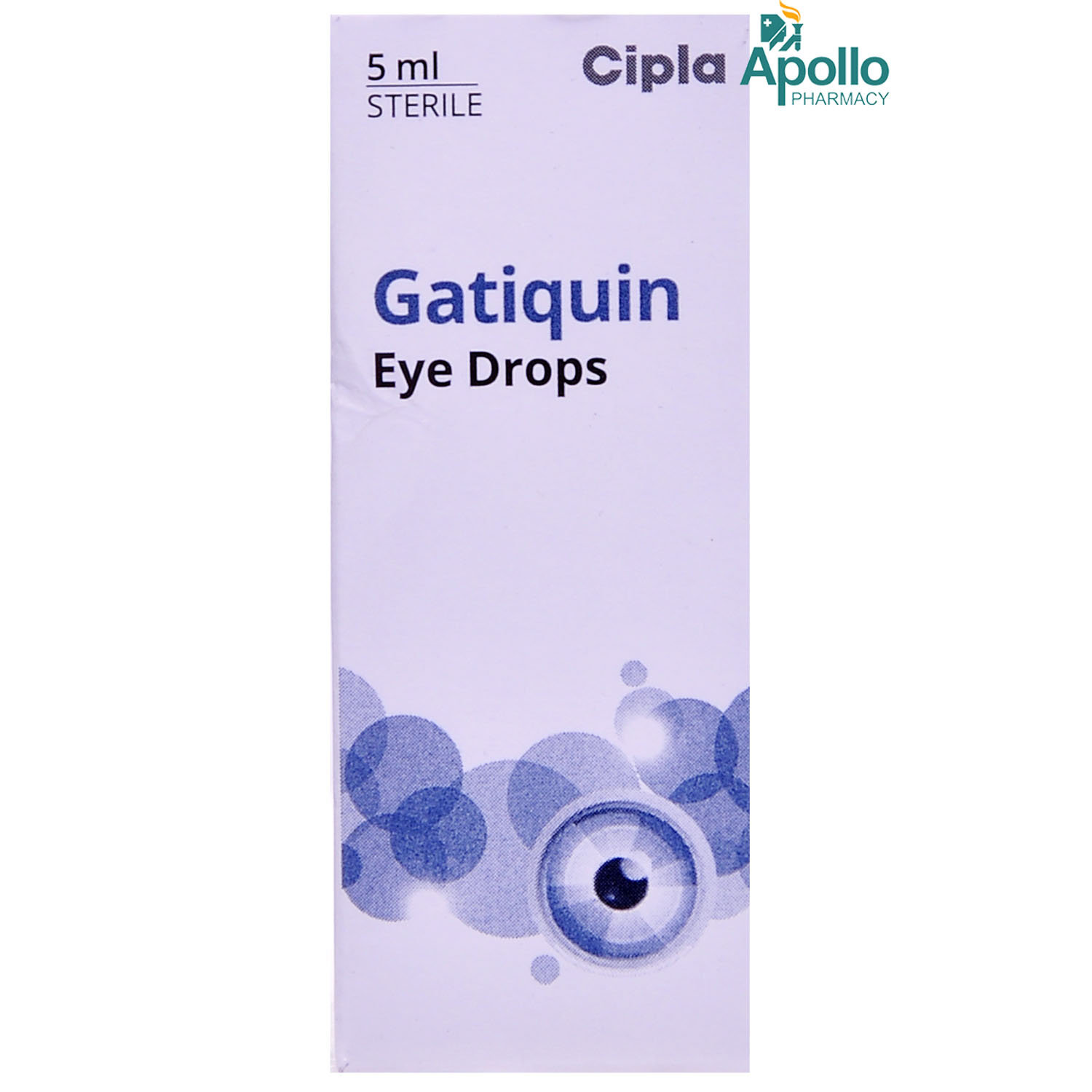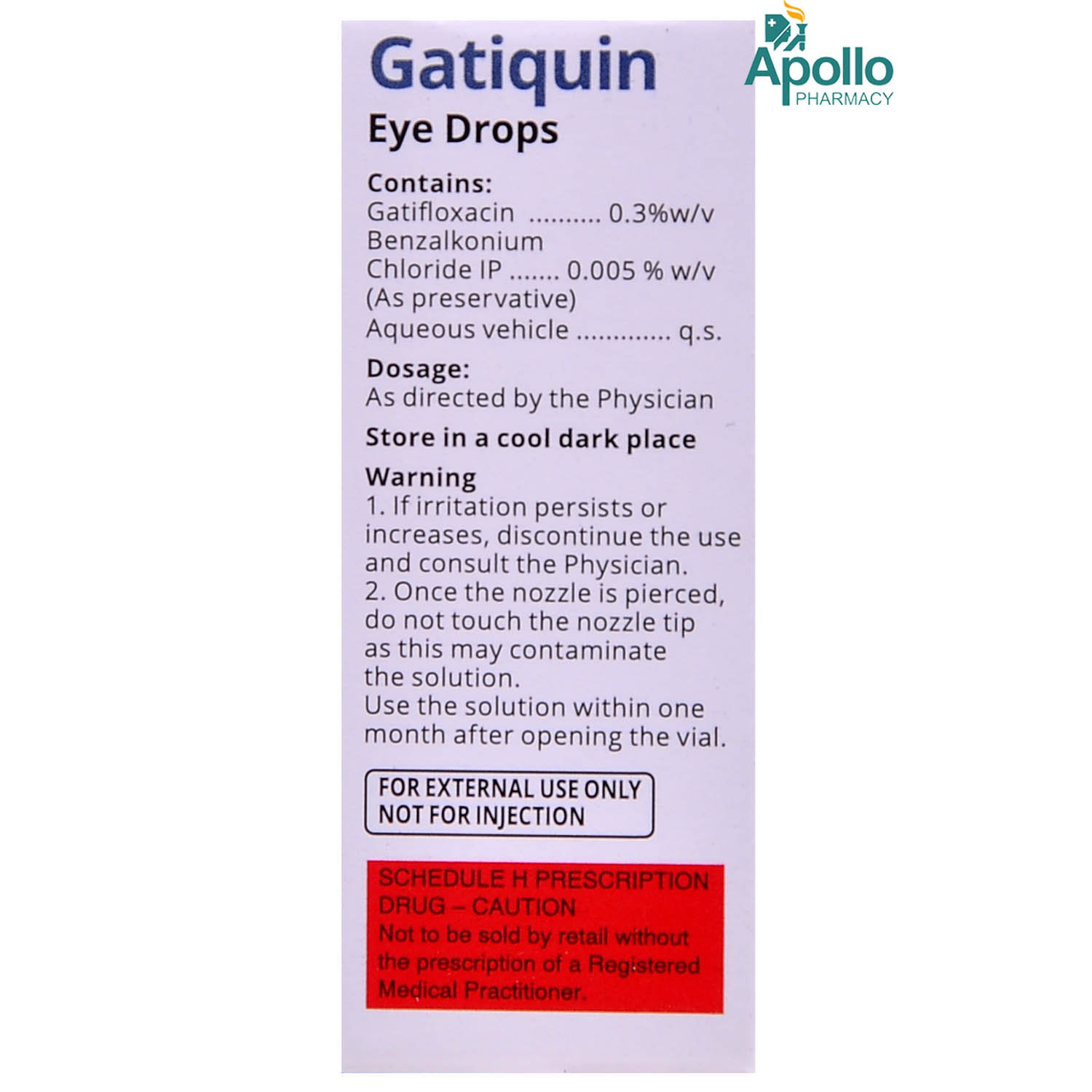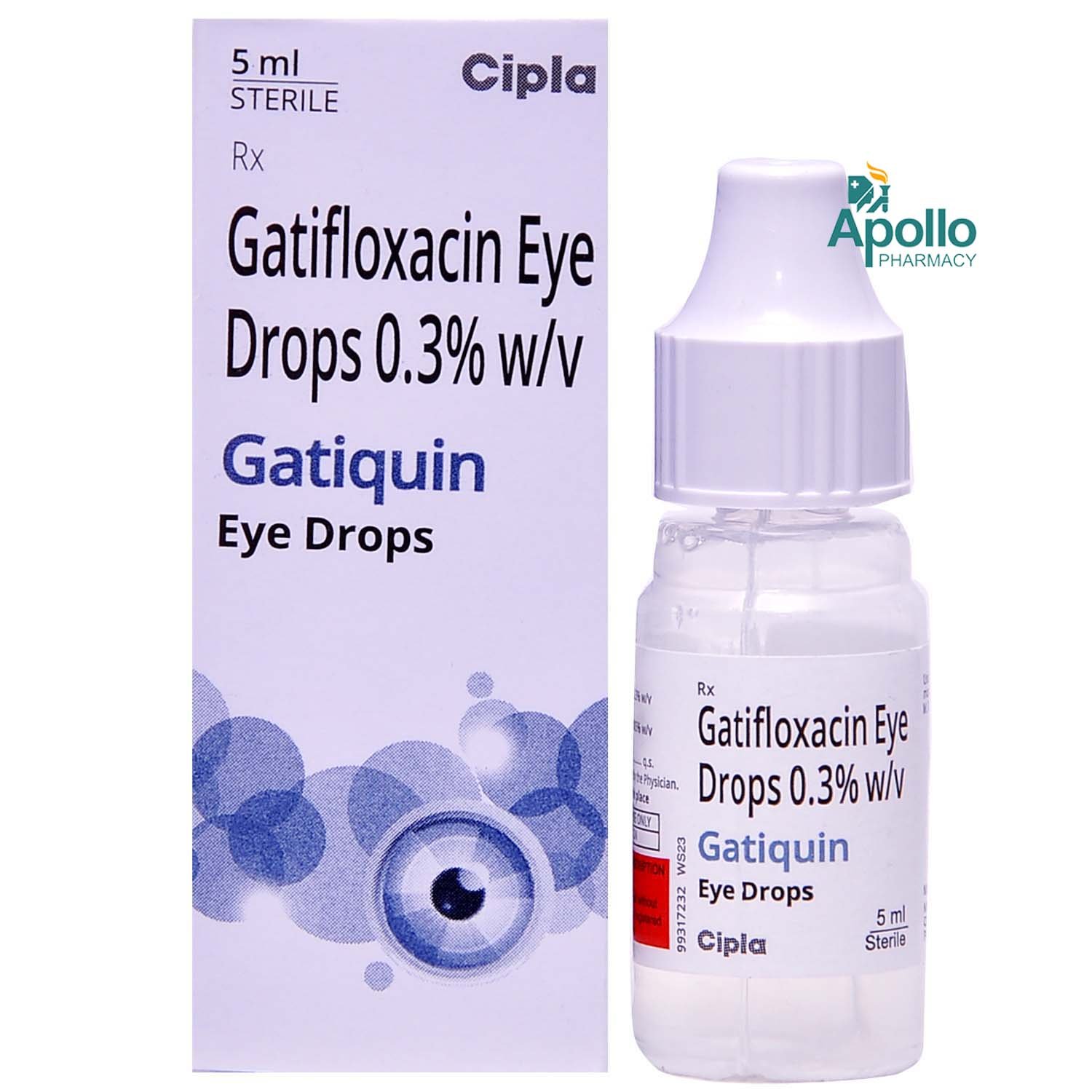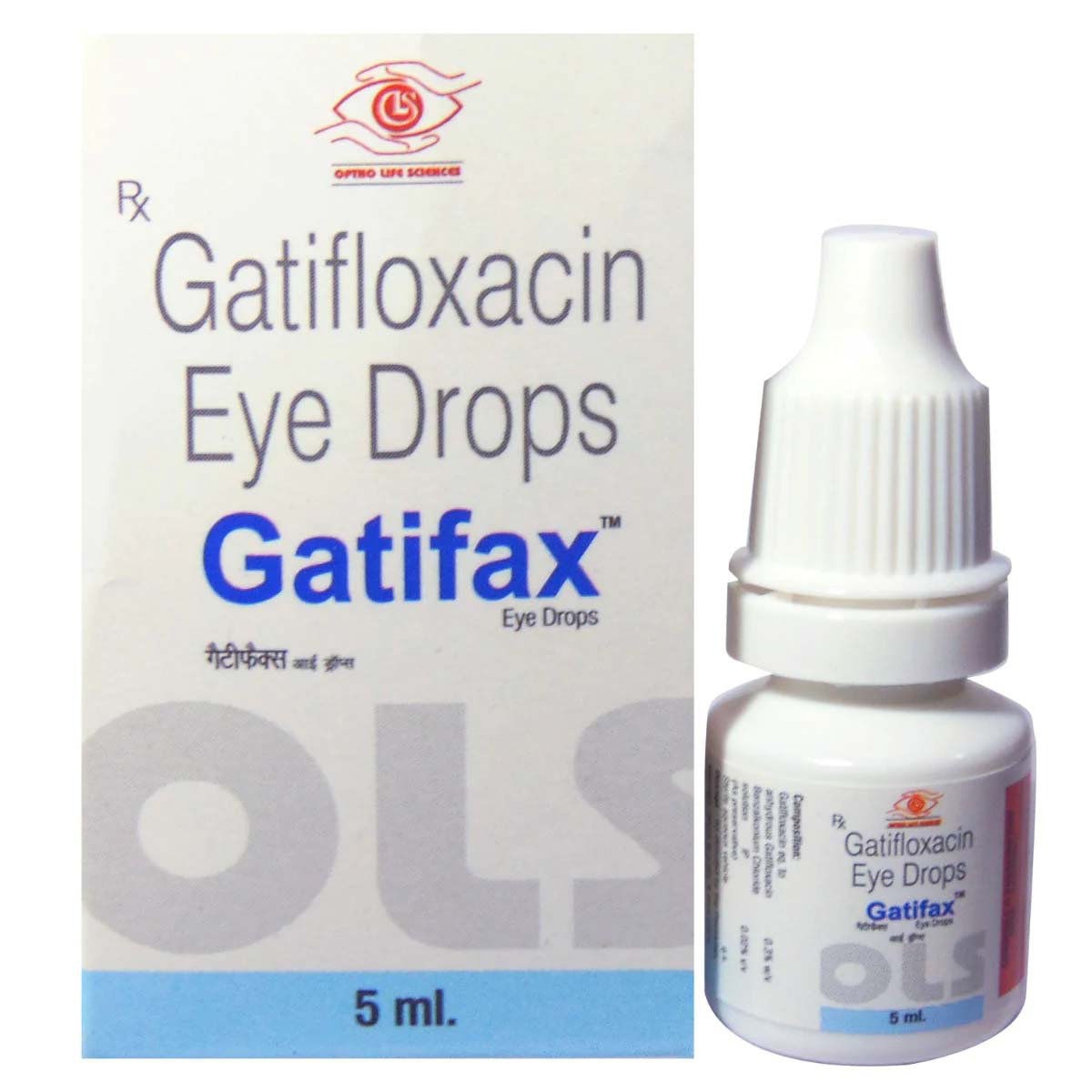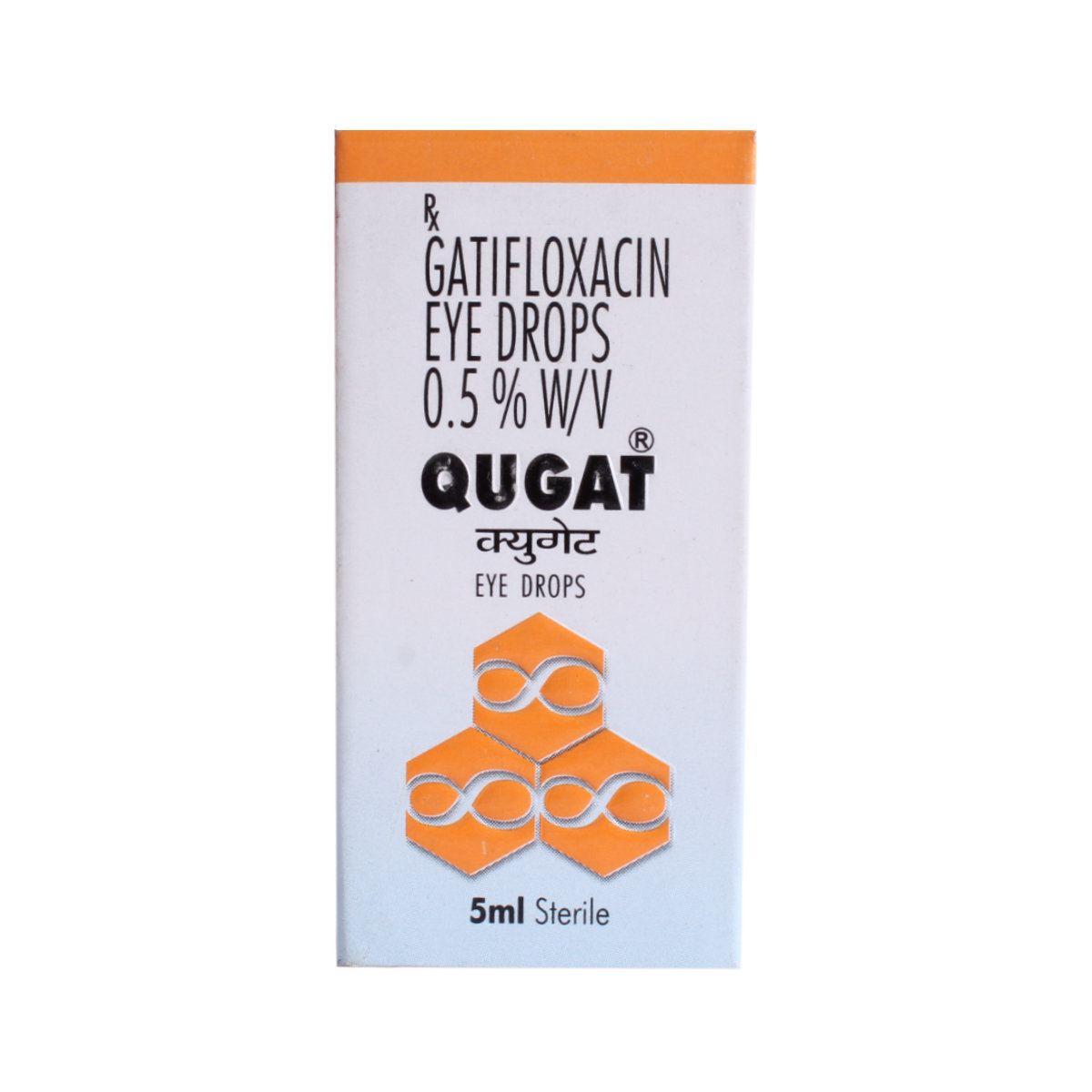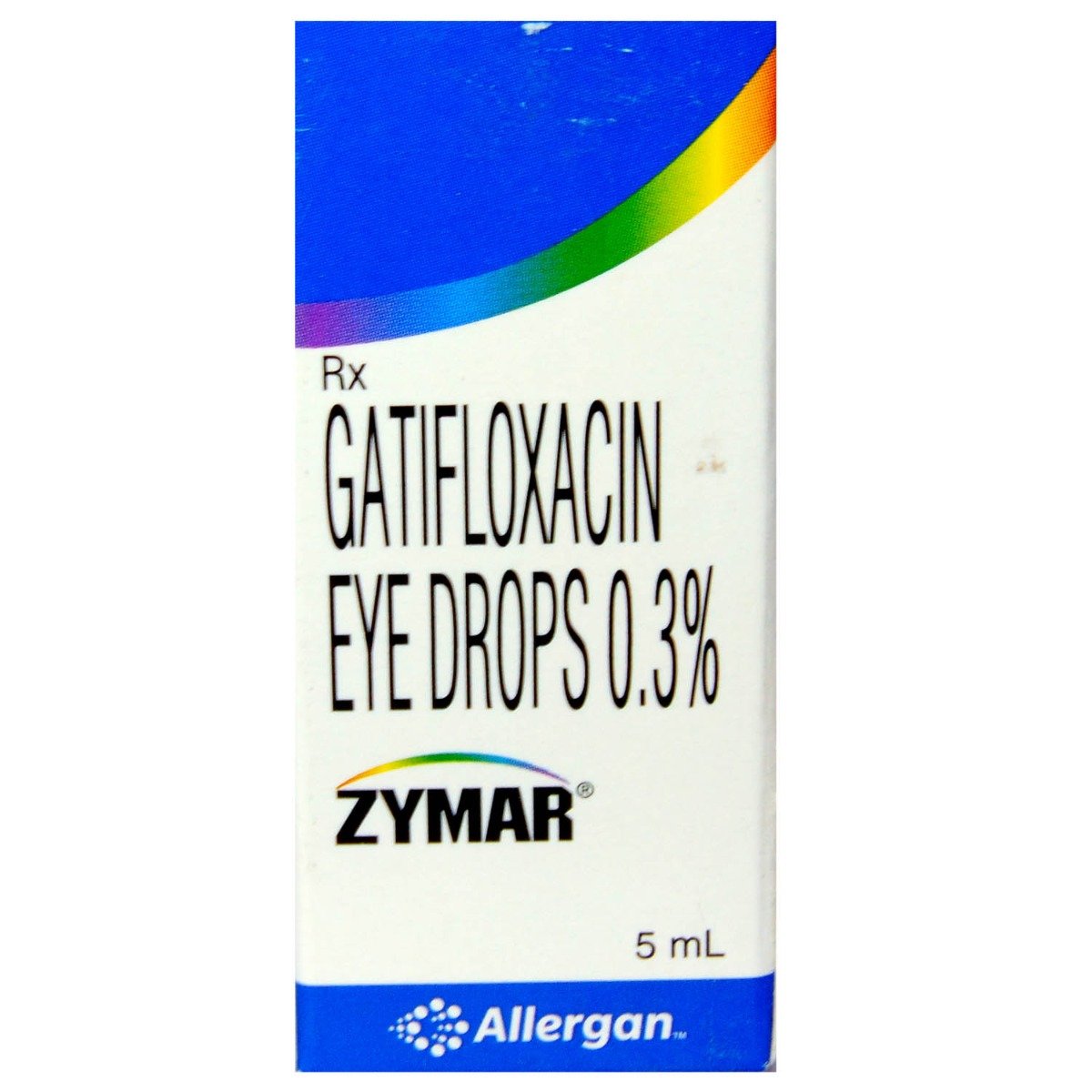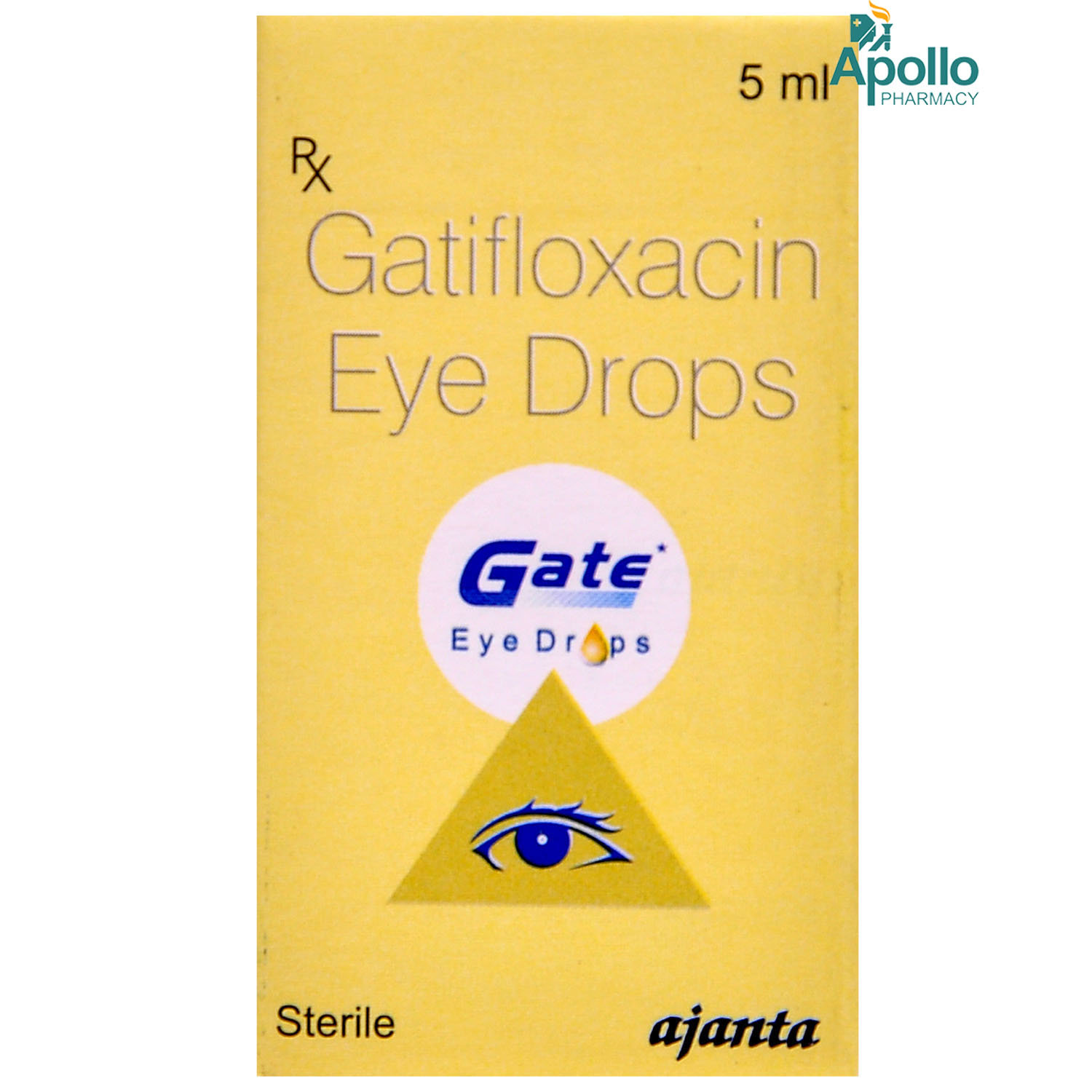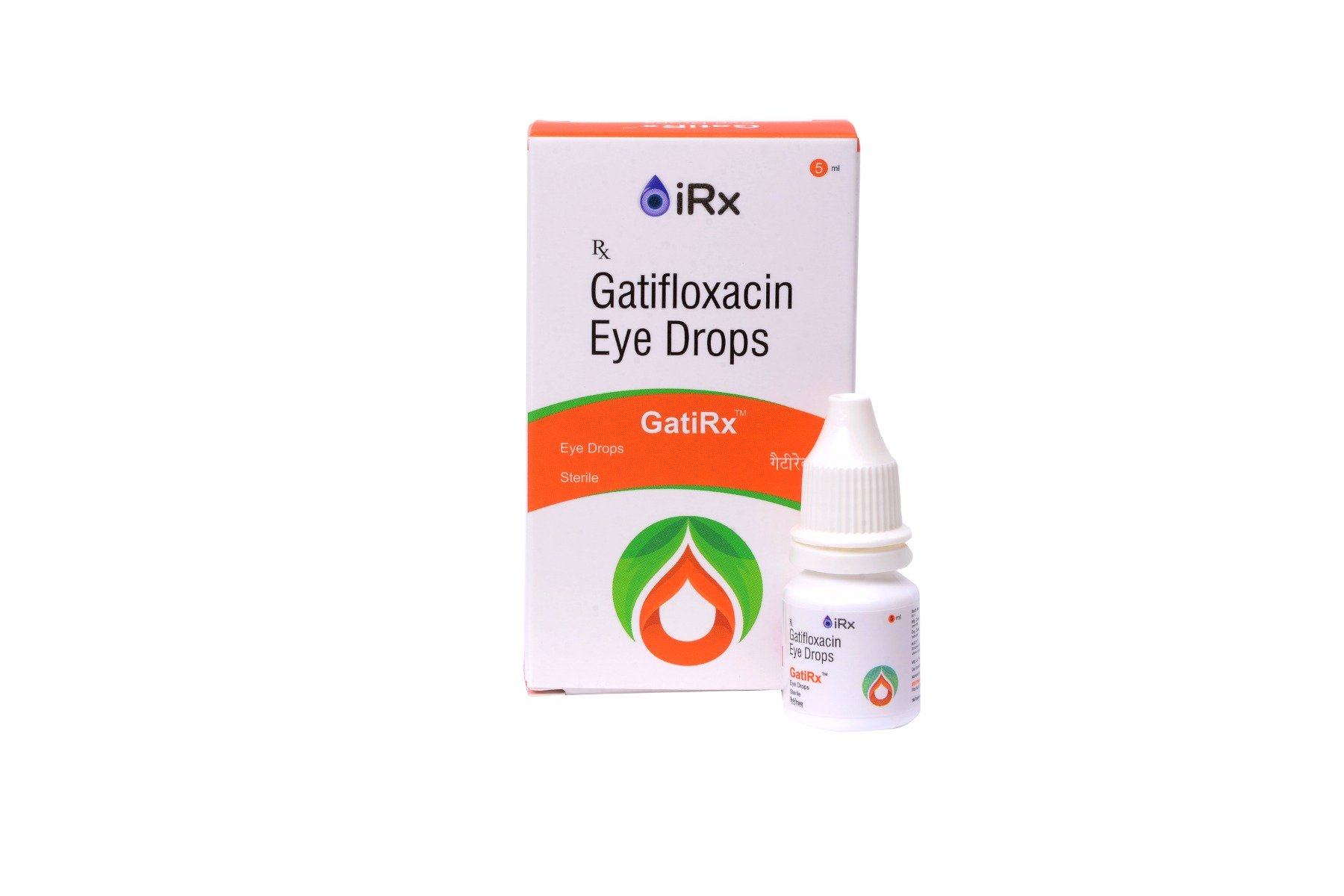Gatiquin Eye Drops 5 ml
MRP ₹86
(Inclusive of all Taxes)
₹10.3 Cashback (12%)
Provide Delivery Location
Online payment accepted
 Prescription drug
Prescription drugWhats That
Composition :
Manufacturer/Marketer :
Consume Type :
Expires on or after :
Return Policy :
About Gatiquin Eye Drops 5 ml
Gatiquin Eye Drops 5 ml belongs to the class of antibiotics known as fluoroquinolones, primarily used to treat bacterial conjunctivitis. Bacterial conjunctivitis is the infection of the outer white membrane of the eyeball, the conjunctiva. This infection is highly contagious. Signs and symptoms include pink/red-toned eyes, gritty feeling in eyes, itchiness in eyes, teary eyes, and thick discharge around the eyes.
Gatiquin Eye Drops 5 ml contains Gatifloxacin, which kills bacteria (bactericidal action) by preventing the synthesis of enzymes, namely DNA gyrase and Topoisomerase IV, which is essential for the growth and survival of the bacterial cell. Gatiquin Eye Drops 5 ml has a broad spectrum of antibacterial activity against aerobic gram-positive and aerobic gram-negative bacteria.
Use Gatiquin Eye Drops 5 ml as prescribed by your doctor. Gatiquin Eye Drops 5 ml is only for use in eyes. You are advised to use Gatiquin Eye Drops 5 ml for as long as your doctor has prescribed it for you based on your medical condition. In some cases, you may experience certain common side effects such as eye irritation, eye redness, blurred vision, and watery eyes. Most of these side effects of Gatiquin Eye Drops 5 ml do not require medical attention and gradually resolve over time. However, if the side effects are persistent, reach out to your doctor.
Before starting Gatiquin Eye Drops 5 ml, please inform your doctor if you have any allergies to any antibiotic or have kidney/liver problems. You should not wear contact lenses while you have symptoms of bacterial conjunctivitis or while you are applying Gatiquin Eye Drops 5 ml. Consult your doctor before taking Gatiquin Eye Drops 5 ml if you are pregnant or breastfeeding. Gatiquin Eye Drops 5 ml is not recommended for children below 1 year. However, please consult a doctor before giving Gatiquin Eye Drops 5 ml to children. Gatiquin Eye Drops 5 ml may cause temporary vision problems (blurred vision), so be cautious while driving and operating machinery.
Uses of Gatiquin Eye Drops 5 ml
Directions for Use
Key Benefits
Gatiquin Eye Drops 5 ml belongs to the group of medicines called fluoroquinolone antibiotics used to treat bacterial conjunctivitis. It kills bacteria (bactericidal action) by preventing the synthesis of enzymes, namely DNA gyrase and Topoisomerase IV, which is essential for the growth and survival of the bacterial cell. Gatiquin Eye Drops 5 ml has a broad spectrum of antibacterial activity against aerobic gram-positive and aerobic gram-negative bacteria. Gatiquin Eye Drops 5 ml has a very low level of bacterial resistance compared to other antibiotics.
Storage
Drug Warnings
Do not take Gatiquin Eye Drops 5 ml if you are allergic or have had a severe reaction to the quinolone or fluoroquinolone antibiotics. You should not wear contact lenses while you have symptoms of bacterial conjunctivitis or while you are using Gatiquin Eye Drops 5 ml. Please inform your doctor if you are pregnant or breastfeeding before starting Gatiquin Eye Drops 5 ml. Gatiquin Eye Drops 5 ml is not recommended for children below 1 year of age as the safety and effectiveness have not been established. Also, inform your doctor about all other medications you have been taking before starting Gatiquin Eye Drops 5 ml. Gatiquin Eye Drops 5 ml may cause temporary blurred vision, so it is advised not to drive or operate machinery until your vision is clear.
Drug-Drug Interactions
Drug-Drug Interactions
Login/Sign Up
Coadministration of Gatiquin Eye Drops 5 ml with Rosiglitazone may sometimes affect blood glucose levels. Both low blood glucose and, less frequently, high blood glucose have been reported.
How to manage the interaction:
Although there is a possible interaction, Rosiglitazone can be taken with Gatiquin Eye Drops 5 ml if prescribed by the doctor. Consult the prescriber if you experience symptoms such as nervousness, confusion, headache, dizziness, drowsiness, tremor, nausea, hunger, weakness, perspiration, palpitation, rapid heartbeat, increased urination, increased thirst, and increased hunger. Maintaining blood glucose levels is advised.
Taking Gatiquin Eye Drops 5 ml and Disopyramide can increase the risk of irregular heart rhythms.
How to manage the interaction:
Taking Gatiquin Eye Drops 5 ml and Disopyramide together is not recommended as it can possibly result in an interaction, it can be taken if your doctor has advised it. However, if you experience sudden dizziness, lightheadedness, fainting, shortness of breath, chest pain or tightness, rapid heartbeat, or memory loss, contact your doctor immediately. Do not discontinue any medications without consulting a doctor.
Co-administration of Dapagliflozin with Gatiquin Eye Drops 5 ml may sometimes affect blood glucose levels. Both low blood glucose and, less frequently, high blood glucose have been reported.
How to manage the interaction:
Although there is a possible interaction, Gatiquin Eye Drops 5 ml can be taken with Dapagliflozin if prescribed by the doctor. Consult the prescriber if you experience symptoms such as nervousness, confusion, headache, dizziness, drowsiness, tremor, nausea, hunger, weakness, perspiration, palpitation, rapid heartbeat, increased urination, increased thirst, and increased hunger. Maintaining blood glucose levels is advised. Do not discontinue the medication without consulting a doctor.
Taking Gatiquin Eye Drops 5 ml with Bepridil can increase the risk or severity of irregular heart rhythms. The risk increases in patients with a history of heart illness or electrolyte imbalance.
How to manage the interaction:
Taking Gatiquin Eye Drops 5 ml with Bepridil together can possibly result in an interaction, it can be taken if your doctor has advised it. However, if you experience sudden dizziness, lightheadedness, fainting, shortness of breath, chest pain or tightness, rapid heartbeat, or memory loss, contact a doctor immediately. Do not discontinue any medications without consulting a doctor.
Coadministration of Repaglinide with Gatiquin Eye Drops 5 ml may sometimes affect blood glucose levels. Both low blood glucose and, less frequently, high blood glucose have been reported.
How to manage the interaction:
Although there is a possible interaction, Repaglinide can be taken with Gatiquin Eye Drops 5 ml if prescribed by the doctor. However, consult the doctor if you experience unusual symptoms. Do not stop using any medications without first talking to your doctor.
Taking Gatiquin Eye Drops 5 ml with Ziprasidone can increase the risk of irregular heart rhythm.
How to manage the interaction:
Taking Gatiquin Eye Drops 5 ml with Ziprasidone together can possibly result in an interaction, but it can be taken together if prescribed by a doctor. However, consult your doctor if you experience sudden dizziness, lightheadedness, fainting, shortness of breath. Do not discontinue any medications without consulting a doctor.
Gatiquin Eye Drops 5 ml may reduce the effectiveness tirzepatide and therby increase the blood glucose levels.
How to manage the interaction:
Close blood glucose monitoring is recommended when on treatment with Gatiquin Eye Drops 5 ml along with tirzepatide.
Coadministration of Gatiquin Eye Drops 5 ml with INSULIN HUMAN may sometimes affect blood glucose levels. Both low blood glucose and, less frequently, high blood glucose have been reported.
How to manage the interaction:
Although there is a possible interaction, INSULIN HUMAN can be taken with Gatiquin Eye Drops 5 ml if prescribed by the doctor. Consult the prescriber if you experience symptoms such as nervousness, confusion, headache, dizziness, drowsiness, tremors, nausea, hunger, weakness, perspiration, palpitation, rapid heartbeat, increased urination, increased thirst, and increased hunger. Maintaining blood glucose levels is advised.
Taking Gatiquin Eye Drops 5 ml with Dronedarone can increase the risk or severity of irregular heart rhythms. The risk increases in patients with a history of heart illness or electrolyte imbalance.
How to manage the interaction:
Taking Gatiquin Eye Drops 5 ml with Dronedarone together is not recommedned as it can possibly result in an interaction, it can be taken if your doctor has advised it. However, if you experience sudden dizziness, lightheadedness, fainting, shortness of breath, chest pain or tightness, rapid heartbeat, or memory loss, contact your doctor immediately. Do not discontinue any medications without consulting a doctor.
Coadministration of Saxagliptin with Gatiquin Eye Drops 5 ml may sometimes affect blood glucose levels. Both high blood glucose and, less frequently, low blood glucose have been reported.
How to manage the interaction:
Although there is a possible interaction, Saxagliptin can be taken with Gatiquin Eye Drops 5 ml if prescribed by the doctor. Consult the doctor if you experience nervousness, confusion, headache, dizziness, drowsiness, tremors, nausea, hunger, weakness, perspiration, palpitation, rapid heartbeat, urination, thirst, and hunger. Monitoring blood glucose levels is advised. Do not discontinue any medications without first consulting your doctor.
Drug-Food Interactions
Drug-Food Interactions
Login/Sign Up
Diet & Lifestyle Advise
- Eat probiotics and a diet rich in vitamins as it may help to improve eye health and ward off infection.
- Rinse your eyes regularly with clean water.
- Eat fiber-rich food like whole grains, beans, lentils, berries, broccoli, peas, and bananas.
- Avoid foods rich in calcium, grapefruit, and grapefruit juice as they might hinder the absorption of antibiotics.
- Avoid usage of tobacco and alcohol.
Side Effects of Gatiquin Eye Drops 5 ml
- Eye irritation
- Eye redness
- Blurred vision
- Watery eyes
Habit Forming
Therapeutic Class
All Substitutes & Brand Comparisons
RX
Out of StockNot for online saleAudiget Eye Drops 10 ml
Megma Healthcare Pvt Ltd
₹49
(₹4.41/ 1ml)
70% CHEAPERRX
Out of StockAlgat Eye Drops 10 ml
Alkem Laboratories Ltd
₹53
(₹5.3/ 1ml)
64% CHEAPERRX
Out of StockNot for online saleGo-3 Eye Drops 5 ml
Akums Drugs & Pharmaceuticals Ltd
₹40
(₹7.2/ 1ml)
52% CHEAPER
Author Details
We provide you with authentic, trustworthy and relevant information
Drug-Diseases Interactions
Drug-Diseases Interactions
Login/Sign Up
FAQs
Disease/Condition Glossary
Bacterial conjunctivitis: It is also known as pink eye, a condition in which the outer membrane of the eyeball gets swollen and infected. Common signs and symptoms include red-toned eyes with a thick discharge and itchiness. It is highly contagious in nature and can spread from one person to another.

Have a query?
Alcohol
Safe if prescribed
Interaction of alcohol with Gatiquin Eye Drops 5 ml is not known. Consult your doctor before consuming alcohol while on treatment with Gatiquin Eye Drops 5 ml.
Pregnancy
Consult your doctor
It is not known whether Gatiquin Eye Drops 5 ml will affect pregnant women. Therefore, consult a doctor before using Gatiquin Eye Drops 5 ml if you are pregnant.
Breast Feeding
Consult your doctor
It is unknown if Gatiquin Eye Drops 5 ml passes into breastmilk. Consult your doctor before taking Gatiquin Eye Drops 5 ml if you are breastfeeding.
Driving
Safe if prescribed
Gatiquin Eye Drops 5 ml usually causes temporarily blurred vision. Therefore, avoid driving or operating machinery until your vision is clear.
Liver
Consult your doctor
Please consult your doctor if you have any liver problems.
Kidney
Consult your doctor
Please consult your doctor if you have any kidney problems.
Children
Safe if prescribed
Gatiquin Eye Drops 5 ml is not recommended for children below 1 year of age. However, please consult a doctor before giving Gatiquin Eye Drops 5 ml to children.

